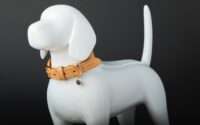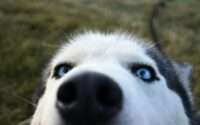What Do Huskies Eat? Mastering Husky Nutrition Like a Pro!
Huskies, with their striking appearance and adventurous spirit, have captured the hearts of dog lovers worldwide. These majestic canines, known for their endurance and intelligence, thrive on a diet that supports their active lifestyle and unique nutritional needs.
In this comprehensive guide, we’ll explore the question, “What do Huskies eat?” and provide valuable insights into crafting a balanced diet for these remarkable companions.
Understanding Husky Dietary Needs
Before delving into Husky dietary recommendations, it’s essential to understand their unique nutritional requirements. Huskies, originally bred as sled dogs in arctic climates, have a metabolism geared toward high energy expenditure. As such, they require a diet rich in protein and fat to fuel their active lifestyles.
Furthermore, Huskies have a sensitive digestive system, making it crucial to choose foods that are easily digestible and free from common allergens. This means opting for high-quality protein sources like chicken, turkey, salmon, and beef, and avoiding fillers and artificial additives that can cause digestive issues.
Their thick double coat also requires specific nutrients to maintain its health and shine. Omega-3 and omega-6 fatty acids, found in sources like fish oil and flaxseed, are essential for skin and coat health in Huskies. Additionally, adequate hydration is crucial to keep their skin and coat hydrated and supple.
Essential Nutrients for Huskies
Huskies, being highly active dogs, require a well-balanced diet that provides essential nutrients to support their energy levels, muscle development, and overall health. Here are some key nutrients crucial for Huskies:
- Protein: Protein is the building block of muscles and plays a vital role in maintaining lean muscle mass and supporting tissue repair. Huskies benefit from high-quality protein sources such as chicken, turkey, salmon, and beef.
- Fat: Fat is a concentrated source of energy and provides Huskies with the fuel they need for their active lifestyle. Healthy fats, such as omega-3 and omega-6 fatty acids, contribute to skin and coat health, ensuring Huskies’ signature double coat remains in optimal condition.
- Carbohydrates: While Huskies primarily rely on protein and fat for energy, carbohydrates can still play a role in their diet. Complex carbohydrates from sources like whole grains, fruits, and vegetables provide sustained energy and essential nutrients.
- Vitamins and Minerals: Huskies require a variety of vitamins and minerals to support their overall health and well-being. Essential vitamins include vitamin A, vitamin D, and the B-complex vitamins, while minerals such as calcium, phosphorus, and zinc are vital for bone health and immune function.
Ensuring Huskies receive a diet rich in these essential nutrients is key to supporting their active lifestyle and promoting optimal health.
Commercial vs. Homemade Husky Diets
When it comes to feeding Huskies, owners have two primary options: commercial dog food or homemade diets. Both have their pros and cons, and choosing the right option depends on various factors, including personal preferences, budget, and dietary considerations.
- Commercial Dog Food: Commercial dog food offers convenience and a wide range of options tailored to different life stages and dietary needs. High-quality commercial dog food brands often undergo rigorous testing to ensure nutritional adequacy and safety. Look for options formulated specifically for active breeds like Huskies, with high protein and fat content and minimal fillers.
- Homemade Diets: Homemade diets provide greater control over ingredients and can be tailored to meet Huskies’ specific nutritional needs. However, preparing balanced homemade meals requires careful planning and understanding of Husky dietary requirements. It’s essential to consult with a veterinary nutritionist to ensure homemade diets are nutritionally complete and balanced.
Ultimately, the best diet for your Husky depends on your preferences, lifestyle, and your dog’s individual needs. Whether you choose commercial dog food or homemade meals, prioritize quality and nutritional balance to support your Husky’s health and well-being.
Recommended Foods for Huskies
Choosing the right food for your Husky is essential to their overall health and well-being. Here are some recommended foods that are ideal for Huskies:
- High-Quality Commercial Dog Food: Look for commercial dog food brands that are specifically formulated for active breeds like Huskies. Opt for options with real meat as the first ingredient and avoid foods with artificial additives, fillers, and by-products.
- Raw Food Diets: Some Husky owners opt for raw food diets, which mimic the natural diet of wild canines. Raw diets typically consist of raw meat, bones, organs, and vegetables. However, it’s essential to consult with a veterinarian to ensure the diet is balanced and meets your Husky’s nutritional needs.
- Supplemental Foods: In addition to commercial dog food or raw diets, you can supplement your Husky’s diet with healthy, dog-safe foods such as cooked eggs, plain yogurt, fruits like apples and blueberries, and vegetables like carrots and green beans. These foods can add variety to your Husky’s diet and provide additional nutrients.
- Foods to Avoid: It’s important to be aware of foods that are harmful to Huskies and should be avoided, including chocolate, grapes, raisins, onions, garlic, and certain nuts. These foods can be toxic to dogs and can cause serious health issues if ingested.
By providing your Husky with a balanced diet consisting of high-quality commercial dog food, raw foods, and supplemental foods, you can ensure they receive the nutrition they need to thrive.
Feeding Husky Puppies
Feeding Husky puppies requires special attention to their unique nutritional needs during the critical growth and development stages. Here are some guidelines for feeding Husky puppies:
- Choose a High-Quality Puppy Food: Select a high-quality commercial puppy food specifically formulated for large breed puppies. These foods contain the right balance of nutrients to support healthy growth and development.
- Follow Feeding Guidelines: Consult the feeding guidelines on the puppy food packaging to determine the appropriate portion sizes for your Husky puppy based on their age, weight, and activity level. Divide the daily recommended amount into several smaller meals throughout the day to prevent overeating and aid digestion.
- Monitor Weight Gain: Keep an eye on your Husky puppy’s weight gain to ensure they are growing at a healthy rate. Avoid overfeeding, as excess weight gain can lead to health problems later in life. Adjust portion sizes as needed based on your puppy’s growth and activity level.
- Transition to Adult Food: Around 12 months of age, gradually transition your Husky puppy to adult dog food. Mix small amounts of adult food into their puppy food over the course of a week until they are fully transitioned to the new food.
Setting your Husky puppy up with a tailored, nutritious diet ensures they thrive with health and vitality throughout their life.
Feeding Adult Huskies
As your Husky transitions into adulthood, their dietary needs may change slightly. Here’s how to ensure your adult Husky receives the proper nutrition:
- Choose a High-Quality Adult Dog Food: Transition your Husky to a high-quality adult dog food formulated for active breeds. Look for options with real meat as the main ingredient and avoid foods with artificial additives and fillers.
- Monitor Portion Sizes: Adult Huskies may require different portion sizes depending on their activity level, metabolism, and weight. Follow the feeding guidelines on the dog food packaging and adjust portion sizes as needed to maintain a healthy weight.
- Maintain a Regular Feeding Schedule: Establish a consistent feeding schedule for your adult Husky, with meals offered at the same times each day. This helps regulate their metabolism and prevents overeating.
- Provide Fresh Water: Always ensure your adult Husky has access to fresh, clean water throughout the day. Hydration is essential for their overall health and well-being.
Ensuring your adult Husky receives a balanced diet customized to their nutritional requirements and adhering to a consistent feeding schedule can support them in sustaining optimal health and energy levels.
Feeding Senior Huskies
As Huskies age, their dietary needs may change, requiring adjustments to their diet to support their changing health and metabolism. Here’s how to provide proper nutrition for senior Huskies:
- Choose a Senior Dog Food: Transition your senior Husky to a high-quality senior dog food formulated for older dogs. These foods are typically lower in calories and contain joint-supporting ingredients such as glucosamine and chondroitin.
- Monitor Weight and Body Condition: Keep an eye on your senior Husky’s weight and body condition and adjust their diet accordingly. Senior dogs may be prone to weight gain or loss, so it’s essential to maintain a healthy weight to prevent health issues.
- Consider Supplements: Senior Huskies may benefit from supplements to support joint health, cognitive function, and overall well-being. Consult with your veterinarian to determine if supplements such as omega-3 fatty acids or joint supplements are appropriate for your senior Husky.
- Provide Easy-to-Digest Foods: Senior Huskies may have more sensitive digestive systems, so it’s essential to provide foods that are easy to digest. Choose foods with high-quality ingredients and avoid foods that may cause gastrointestinal upset.
Tailoring your senior Husky’s diet to accommodate their evolving nutritional requirements and closely monitoring their health can assist them in gracefully aging while sustaining a high quality of life.
Special Dietary Considerations for Huskies
While Huskies are generally healthy dogs, they may have specific dietary considerations that owners should be aware of. Here are some special dietary considerations for Huskies:
- Allergies and Food Sensitivities: Like all dogs, Huskies can develop allergies or food sensitivities to certain ingredients. Common allergens include grains, chicken, beef, and dairy. If you suspect your Husky has food allergies or sensitivities, work with your veterinarian to identify the culprit and adjust their diet accordingly.
- Weight Management: Huskies are prone to obesity if overfed or not provided with enough exercise. Maintain a healthy weight for your Husky by monitoring their food intake and ensuring they receive regular exercise. If your Husky is overweight, consult with your veterinarian to develop a weight management plan.
- Joint Health: Huskies, particularly as they age, may be prone to joint issues such as hip dysplasia or arthritis. Choose foods with joint-supporting ingredients such as glucosamine and chondroitin, and consider supplements to support joint health.
- Hydration: Huskies are known for their love of cold weather, but they still need to stay hydrated, especially during hot weather or periods of increased activity. Ensure your Husky has access to fresh, clean water at all times to prevent dehydration.
Remaining mindful of these unique dietary considerations and proactively addressing them can contribute to your Husky’s lifelong happiness and health.
Creating a Balanced Diet Plan for Your Husky
Crafting a balanced diet plan for your Husky is essential to their overall health and well-being. Here are some tips for creating a balanced diet plan:
- Consult with Your Veterinarian: Work with your veterinarian or a veterinary nutritionist to develop a personalized diet plan for your Husky based on their age, weight, activity level, and any health issues.
- Choose High-Quality Foods: Select high-quality commercial dog food or raw food options that meet your Husky’s nutritional needs. Look for foods with real meat as the main ingredient and minimal fillers or artificial additives.
- Provide Variety: Offer a variety of foods to ensure your Husky receives a wide range of nutrients. Include lean meats, whole grains, fruits, and vegetables in their diet to provide essential vitamins, minerals, and antioxidants.
- Monitor Portion Sizes: Pay attention to portion sizes and adjust them as needed based on your Husky’s weight and activity level. Avoid overfeeding to prevent obesity and related health issues.
- Regular Exercise: In addition to a balanced diet, ensure your Husky receives regular exercise to maintain a healthy weight and overall fitness level. Daily walks, playtime, and activities such as hiking or agility training can keep your Husky physically and mentally stimulated.
By following these tips and working closely with your veterinarian, you can create a balanced diet plan that meets your Husky’s nutritional needs and supports their overall health and well-being.
Conclusion
In conclusion, understanding what Huskies eat is essential for providing them with the nutrition they need to thrive. By following the recommendations outlined in this guide, you can ensure your Husky receives a balanced diet that supports their active lifestyle and overall health.
Remember to choose high-quality foods that are appropriate for your Husky’s age, size, and activity level. Monitor their weight and body condition closely and make adjustments to their diet as needed.
Additionally, be mindful of any special dietary considerations your Husky may have, such as allergies or joint issues, and consult with your veterinarian for personalized guidance. With proper nutrition and care, your Husky can enjoy a long, healthy, and happy life by your side.
Frequently Asked Questions
What do Huskies eat?
Huskies thrive on a diet rich in high-quality protein, healthy fats, and essential nutrients. This includes foods such as lean meats, fish, fruits, vegetables, and whole grains.
Can Huskies eat raw meat?
While some owners choose to feed their Huskies raw diets, it’s essential to ensure that the raw meat is fresh, high-quality, and free from contaminants. Consult with your veterinarian before feeding your Husky a raw diet.
How often should I feed my Husky?
Adult Huskies typically benefit from being fed twice a day, while puppies may require more frequent meals. Monitor your Husky’s weight and adjust their feeding schedule and portion sizes as needed.
What foods should I avoid feeding my Husky?
Avoid feeding your Husky foods that are toxic to dogs, such as chocolate, grapes, raisins, onions, garlic, and certain nuts. Additionally, be cautious of foods that may cause digestive upset, such as dairy and high-fat foods.
Do Huskies have any special dietary considerations?
Huskies may have specific dietary considerations, including allergies, sensitivities, and joint issues. It’s essential to be aware of these and tailor your Husky’s diet accordingly.
Can Huskies eat fruits and vegetables?
Yes, many fruits and vegetables are safe and healthy for Huskies to eat in moderation. Some examples include apples, blueberries, carrots, and green beans.
How do I transition my Husky to a new diet?
When transitioning your Husky to a new diet, do so gradually over the course of about a week to prevent digestive upset. Mix small amounts of the new food with their current food, gradually increasing the proportion of the new food.
What are the signs of a food allergy in Huskies?
Signs of a food allergy in Huskies may include itching, redness, inflammation, gastrointestinal upset, and ear infections. If you suspect your Husky has a food allergy, consult with your veterinarian for guidance.
Can Huskies be prone to obesity?
Yes, Huskies can be prone to obesity if overfed or not provided with enough exercise. It’s essential to monitor your Husky’s weight and body condition and adjust their diet and exercise accordingly.
Should I consult with a veterinarian about my Husky’s diet?
Yes, consulting with a veterinarian or veterinary nutritionist is recommended to ensure your Husky’s diet meets their nutritional needs. They can provide personalized recommendations based on your Husky’s age, weight, activity level, and health status.




